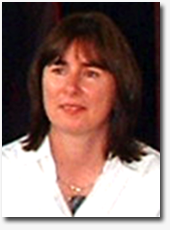|
|
|
THEMATIC PROGRAMS |
||
| December 13, 2025 |
|
|||
Our aim in these lectures is to discuss a higher dimensional (or product theory) aspect of Fourier analysis. It too has connections to both real and complex function theory, from analytic function theory of the bidisc to the summation of multiple Fourier series. Some of the modern questions center on issues related to singular integrals, Hardy spaces, averaging, bilinear operators, and reach into probability theory through multi-parameter martingales, and higher dimensional Brownian sheets. The representation of a function as a sum of simpler (atomic) pieces, and the associated reconstruction and convergence issues, has been the fundamental theme in Fourier theory. There are various aspects of the classical theory which make it easier to constructively obtain such decompositions. The classical theory in Rd is a one-parameter theory, which essentially means that the extension to d dimensions of operators like the Hilbert transform on the line is based on invariance under a one parameter family of dilations. The function spaces which arise in connection with such operators may then be defined via decompositions involving cubes (or balls), giving us tools like maximality and stopping time arguments. By contrast, the product theory introduces natural operators and function spaces invariant under some k dimensional family of dilations in Rd , a truly higher dimensional structure. The first lecture will contain background and definitions: the classical problems in Fourier analysis which led to modern developments in singular integral operators, bilinear operators, Hardy and BMO spaces, and their applications. We will introduce the multi-parameter analog of these operators and their associated function spaces. In the second lecture, we focus on multi-parameter problems involving singular integrals or bilinear operators. In the third lecture, we discuss additional problems in the product theory, including differentiation, and conclude with some open problems. Speakers in the Coxeter Lecture Series (CLS) have made outstanding contributions to their field of mathematics. The CLS consists of a series of three one-hour lectures. Index of Fields Distinguished and Coxeter Lectures. |
||||

